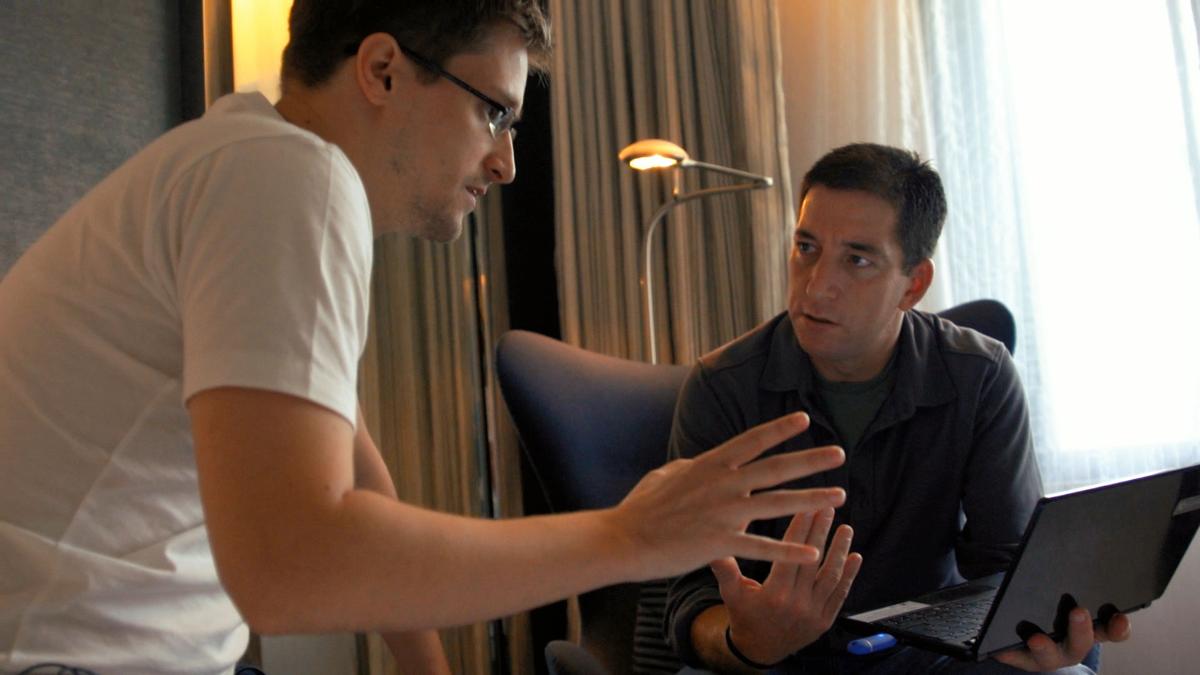It has been almost three years since journalist Glenn Greenwald and filmmaker Laura Poitras met with Edward Snowden in a Hong Kong hotel.
The meeting was the basis for the critically acclaimed documentary “Citizenfour” and the start of the release of classified documents proving the illegal wiretapping practices of the National Security Agency.
On Thursday, March 24 at a sold-out screening at The Loft, Greenwald will tell Tucsonans the issues brought up in the film are still as relevant as they were three years ago. He’ll also be part of a sold-out panel discussion Friday night at Centennial Hall that will include Noam Chomsky, a MIT professor and political activist, and Snowden, who will video conference from Russia.
Some companies have started to side with the users rather than the government in the fight over privacy, a departure from several years ago, Greenwald says.
“Silicon Valley companies, Apple and Facebook in particular, want to demonstrate to users that they have been protecting the privacy and sanctity of their communications as opposed to what they’ve been doing previously which is collaborating with the NSA and handing it over,” he said.
The context of the current fight between Apple and the FBI to unlock and decrypt the iPhone of San Bernardino shooter Syed Rizwan Farook can be found in the reporting by Greenwald and others after Snowden released the documents and in the documentary.
“They are really the critical context for those issues,” he said.
He describes a “pre-Snowden” and “post-Snowden” context for privacy. He noted tat millions, if not billions, of potential customers will ditch their digital devices if companies do not demonstrate that they are taking privacy concerns seriously.
Greenwald advises that those concerned about privacy continue the discussion with friends, family and colleagues.
“I think it is critical to keep thinking critically about these issues,” Greenwald said. “And beyond, that there are steps people can take to safeguard their own privacy and make state surveillance more difficult.”
He suggested people vote with their wallet, saying some companies do offer privacy protections for those concerned about their personal data.
“That is one of the critical reasons why things have changed for the better,” Greenwald said.
If this sounds overwhelming, Greenwald said it wasn’t that long ago that he had to learn how to better secure his privacy. He said initial communications with Snowden were almost hampered by a digital divide.
“When I first started talking to Snowden we were almost unable to connect because he wanted me to use this very sophisticated form of encryption which I was unfamiliar that as a journalist, I wasn’t well versed in.” he said.
Two resources to get more information about privacy are the Electronic Frontier Foundation and an organization he helped establish, The Freedom of the Press Foundation.
Thursday’s talk is sponsored by The New York Times, the University of Arizona School of Journalism, the UA’s College of Social and Behavioral Sciences, the Arizona Inn and the Loft Cinema.
The screening of the movie starts at 7:30 p.m. at the Loft with Greenwald answering questions from the audience after the documentary.





